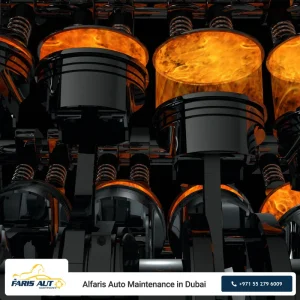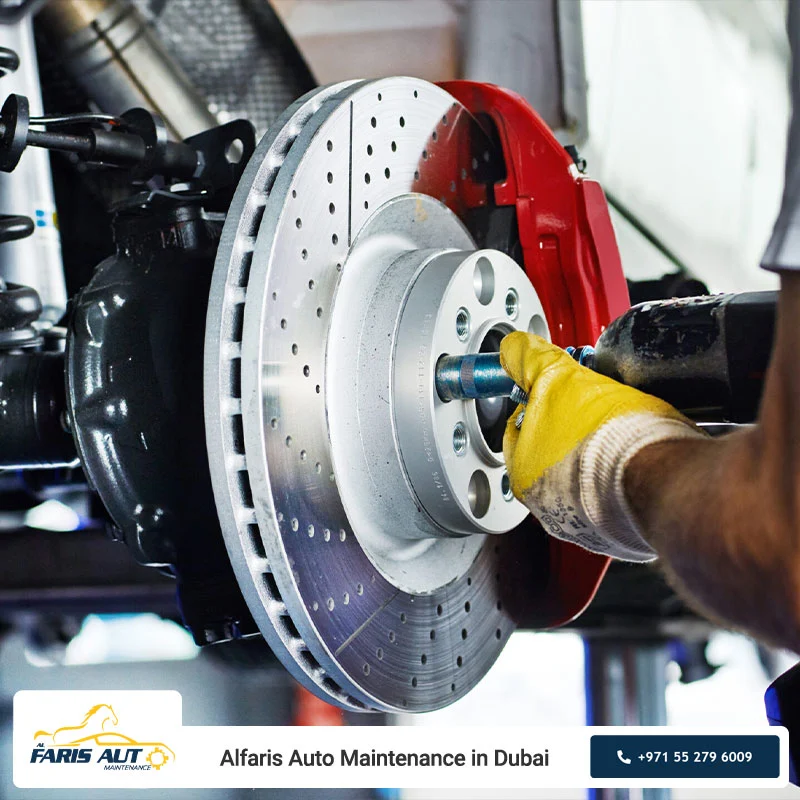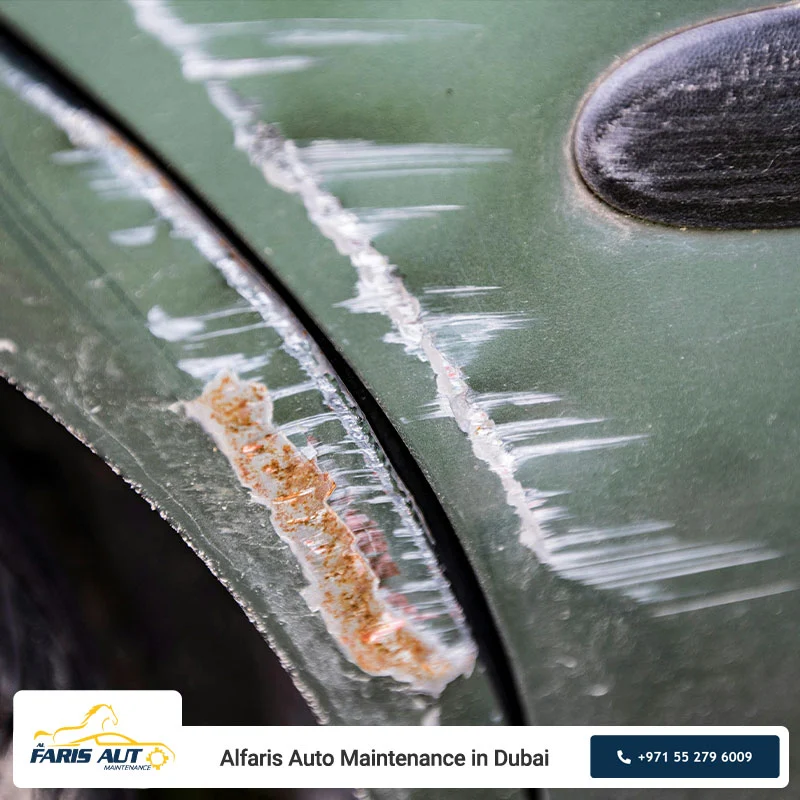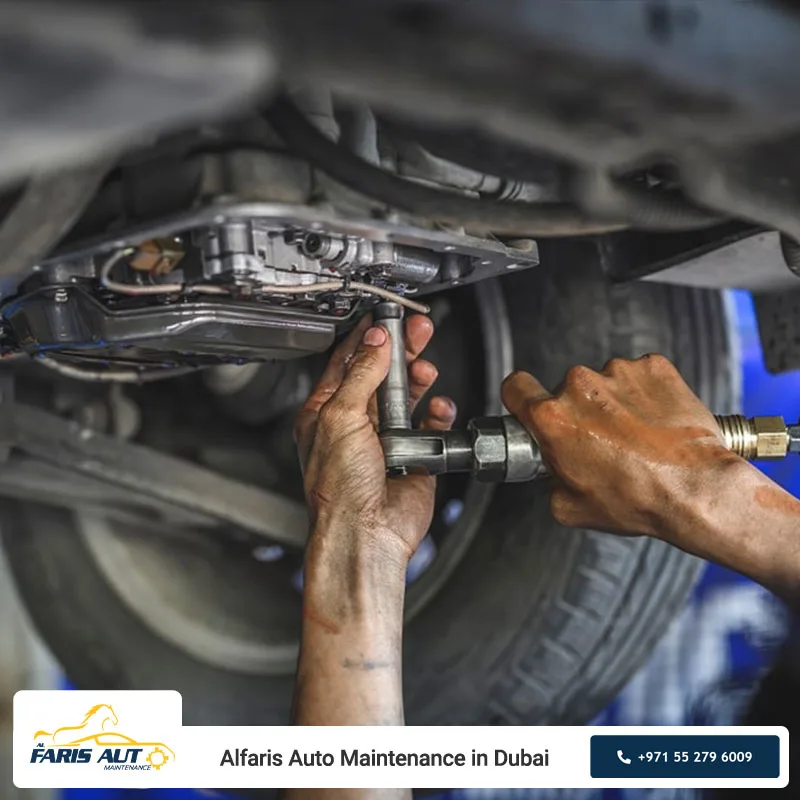The internal combustion engine in a car is one of the most fundamental and essential components of the automotive industry. The engine plays a crucial role in the performance and efficiency of a car. Given its importance, automotive engine repair shops are also among the vital specialties in this industry. This type of engine generates the mechanical energy necessary for car movement through the combustion of fuel within the cylinder.
In this article, Alfaris Auto Repair Center will examine the structure and function of internal combustion engines, their types, main components, and the role of fuel in the efficiency of these engines. We will also explore the car s that utilize this type of engine. Internal combustion engines are recognized as one of the primary powertrains in cars and, despite the emergence of electric motors, they still find extensive use in many car s. We will delve into more details about these engines.
- What is an Internal Combustion Engine?
- Types of Internal Combustion Engines in Cars
- Components of Internal Combustion Engines and Their Roles
- Which Cars Use Internal Combustion Engines?
- What Fuels Do Internal Combustion Engines Use?
What is an Internal Combustion Engine?
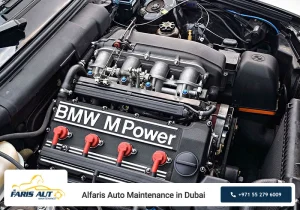
An internal combustion engine (ICE) refers to an engine that converts the chemical energy of fuel into mechanical energy through combustion within itself. Due to its high efficiency and reliable performance, it has been recognized as one of the main powertrains in the automotive industry since its invention in the 19th century. The early inventions in this field are attributed to names like Nikolaus Otto and Carl Benz, both of whom played significant roles in the development of this technology.
Internal combustion engines have become one of the most practical components of car s due to their ability to produce high power and operate under various climatic and geographic conditions. These engines are especially used in passenger cars, trucks, and heavy-duty car s and are popular due to their low fuel and maintenance costs.
Internal combustion engines differ fundamentally from electric and hybrid engines. Electric engines use electrical energy for movement and produce less pollution due to the absence of fuel combustion. In contrast, internal combustion engines typically produce more emissions due to their reliance on fossil fuels. Given the application of these engines, internal combustion engine repair shops are increasingly in demand.
Types of Internal Combustion Engines in Cars
Internal combustion engines are divided into various types, each with its own characteristics and specific performance:
- Otto Engine: This type of engine is one of the most common in passenger cars, and its operating cycle includes four stages: intake, compression, explosion, and exhaust. In this cycle, fuel and air are drawn into the cylinder, and after compression, combustion occurs via a spark plug.
- Atkinson Engine: Atkinson engines have lower fuel consumption due to their specific design and are typically used in hybrid car s.
- Diesel Engine: Diesel engines are known for their greater efficiency and longer lifespan. These engines are utilized in heavy cars and trucks.
- Wankel Engine (Rotary Engine): This type of engine has a unique design and utilizes an oval-shaped chamber as its cylinder. Despite their high efficiency, these engines are less commonly used due to their high emissions.
- Two-Stroke Engine: These engines perform two main functions with each piston stroke. Due to their simple design, they are used in certain motorcycles and agricultural equipment.
- Four-Stroke Engine: Four-stroke engines are widely used in most passenger and commercial cars due to their high efficiency and technical capabilities.
- Six-Stroke Engine: These engines are less known due to their complex design and lack of mass production, remaining in conceptual stages.
For more information on various types of car engines, you can refer to the relevant article on the Al-Faris Auto Repair website.
Components of Internal Combustion Engines and Their Roles
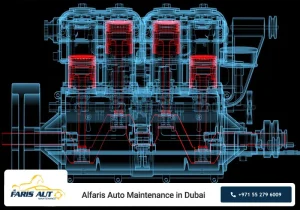
An internal combustion engine consists of two main parts: the engine block and the cylinder head. The engine block contains components such as the crankshaft, connecting rods, bearings, and pistons. The cylinder head houses the camshaft, rocker arms, and valves.
Main Components of the Engine:
- Cylinder: The chamber where the piston moves and combustion occurs.
- Piston: Creates pressure in the cylinder with its movement and transfers energy to the crankshaft.
- Crankshaft: Converts mechanical energy into rotational motion.
- Valves: Responsible for the intake and exhaust of air and fuel.
Proper maintenance of these components increases engine lifespan and reduces repair costs. Therefore, reputable automotive engine repair shops in Dubai place special emphasis on providing maintenance and car repair services.
Which Cars Use Internal Combustion Engines?
- Gasoline Cars: These cars use gasoline as fuel, and their internal combustion engines ignite a mixture of gasoline and air using a spark.
- Diesel Cars: These cars utilize diesel fuel and create combustion by compressing air and then injecting diesel fuel.
- Hybrid Cars: These cars combine an internal combustion engine with an electric motor and can use both for movement. Due to reduced emissions and fuel consumption, this type of car is rapidly expanding.
Internal combustion engines remain popular due to their high power and low fuel costs. However, their limitations in terms of emissions and fuel consumption have led to increased attention on new technologies and electric motors. Notably, there are differences in the expertise required for automotive engine repair shops for each of the mentioned types. To repair various types of car engines, including gasoline, diesel, and hybrid, you should visit a specialized service dedicated to each type. Al-Faris Auto Repair in Dubai is ready to provide you with a variety of automotive repair services for different engine types. You can also read the article on our website to gain insights into the car engine repair process.
What Fuels Do Internal Combustion Engines Use?
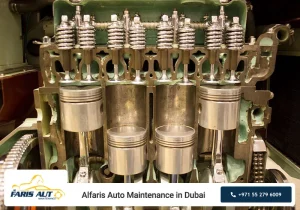
As mentioned in the previous section, the type of internal combustion engine determines its fuel. Internal combustion engines typically use fuels such as gasoline, diesel, and LPG. Each of these fuels has its own unique characteristics that influence engine performance. The type of fuel significantly affects engine operation and efficiency. For example, diesel engines usually have higher efficiency due to high compression and self-ignition. Given the need to reduce emissions, extensive research is being conducted on developing environmentally friendly fuels. Biofuels and hydrogen are among these innovations that can serve as alternatives to fossil fuels.
The internal combustion engine in a car is one of the main components of the automotive industry, playing a vital role in car performance and efficiency. Considering the various types of these engines and their components, each has its own specific characteristics and applications. Additionally, with the need to reduce emissions and fuel consumption, the future of these engines may be influenced by new technologies. Therefore, reputable repair shops and specialists in this field play an important role in maintaining and repairing these engines.
